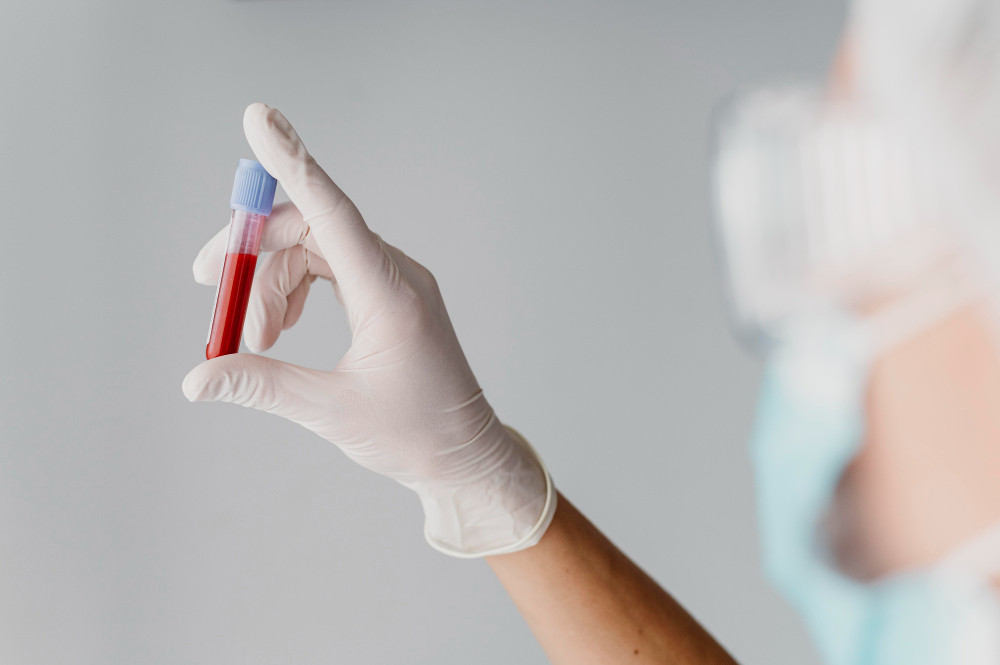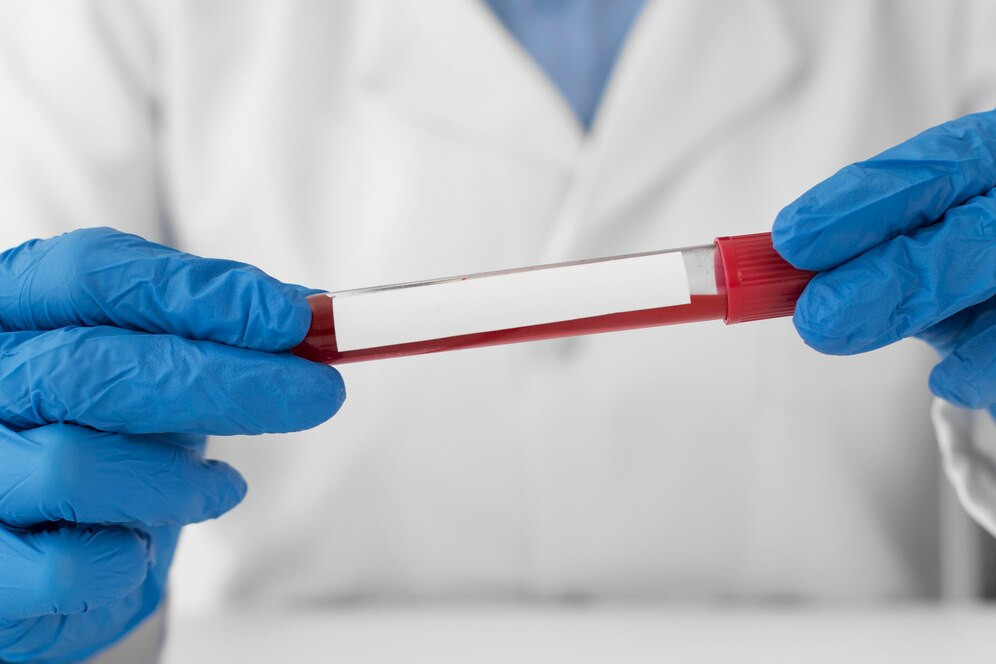Definition
Toxoplasmosis is a disease caused by an infection by a parasite called Toxoplasma gondii (T. gondii). This parasite reproduces in the intestines of cats. Humans can become infected through direct or indirect contact with cat feces or by consuming undercooked meat.
Toxoplasmosis can infect anyone, and most people do not exhibit symptoms when infected or asymptomatic. Toxoplasmosis causes severe conditions or the greatest risk during pregnancy and for those with immunosuppression conditions, such as individuals with HIV or cancer.
Although the Toxoplasma gondii parasite requires cats to reproduce, owning a cat does not significantly increase the risk of toxoplasmosis infection. Accidental ingestion of T. gondii can occur through contact with contaminated items such as:
- Cleaning a cat's litter box
- Gardening in infected soil
- Drinking unprocessed water
- Eating unwashed fruits or vegetables
- Consuming undercooked or improperly refrigerated meat
Toxoplasmosis is not directly contagious between individuals, but pregnant women can transmit the parasite to the fetus. In rare cases, individuals may also be infected with toxoplasmosis after receiving an organ transplant or a blood transfusion from an infected donor.
Causes
Toxoplasmosis is caused by an infection with the T. gondii parasite. Humans infected with toxoplasmosis usually after accidentally consuming or ingesting something contaminated with the parasite.
Due to the possibility of the parasite in a dormant or inactive state in your body, you may experience toxoplasmosis symptoms either when first infected or later. When the parasite initially enters the body, some people may experience flu-like symptoms. However, in many cases, the immune system can eliminate the initial infection without causing any symptoms.
As immune cells fight against it, T. gondii forms small cysts in your body. The parasite can live in these cysts and remain inactive for an extended period. Research indicates that these cysts periodically rupture. Similar to the initial infection, this typically does not cause symptoms. However, if your immune system weakens, the rupturing cysts can lead to a new case of toxoplasmosis, known as reactivation.
Risk Factor
This parasite is found worldwide, and anyone can become infected. The risk of severe disease due to toxoplasmosis is associated with factors that impair the immune system's ability to fight infection, such as:
- HIV/AIDS infection
- Chemotherapy treatment for cancer
- High-dose steroid use
Symptoms
The symptoms of toxoplasmosis depend on where the parasite is active and tend to differ depending on whether it is an acute infection, reactivation, or congenital.
Ocular toxoplasmosis symptoms
Ocular toxoplasmosis is an infection of T. gondii in one or both eyes. This condition most commonly occurs in teenagers or young adults who were born with T. gondii infection. Cases of ocular toxoplasmosis rarely occur when you are first infected with T. gondii. Symptoms of ocular toxoplasmosis include:
- Eye pain
- Blurred vision
- Blindness
Acute toxoplasmosis symptoms
Acute toxoplasmosis is your body's response to the initial T. gondii infection. Most people do not feel sick, but you may experience flu-like symptoms, including:
- Fever
- Fatigue
- Muscle pain
- Non-painful swelling of lymph nodes in the neck or armpits
- Sore throat
- Enlargement of the liver and spleen (hepatosplenomegaly)
Reactivated toxoplamosis symptoms
If you have a weakened immune system (immunocompromised), you may have had a previous T. gondii infection that becomes active again when your body is in an immunosuppressive condition. For example, individuals with AIDS, cancer, or those using immunosuppressive drugs. Reactivated toxoplasmosis usually causes symptoms related to the brain and spinal cord (central nervous system, or CNS). These symptoms may include:
- Headache
- Confusion
- Seizures
- Fever
- Facial paralysis
- Changes in vision
- Numbness
- Weakness or loss of motor skills
Congenital toxoplasmosis symptoms
Congenital toxoplasmosis (present at birth) is transmitted from a pregnant mother to her fetus. Some babies may not have any symptoms at birth but are at high risk of developing them later on. These symptoms may include:
- Yellow skin and eyes
- Rash
- Enlargement of the liver and spleen (hepatosplenomegaly)
- Vision loss, eye pain, or light sensitivity (retinochoroiditis)
- Calcium deposits in the brain
- Fluid in the brain (hydrocephalus)
- Small head size (microcephaly)
- Seizures
- Developmental delay
- Learning or behavioral delay
If you want to know more about the microcephaly, you can read it here: Microcephali - Definition, Cause, Symptom, And Treatment
Diagnosis
Diagnosis of toxoplasmosis will depend on the medical history, physical examination, and diagnostic tests. Supporting tests may include blood tests to check antibody levels, eye examinations, MRIs, CT scans, and ultrasounds in pregnant women.
Management
The use of medications is provided to treat active infections. The dosage and duration of medication intake depend on various factors, including the severity of the disease, overall health condition, and immune system status. In pregnant women, the stage of pregnancy also affects the administration of treatment. The medications include:
- Pyrimethamine: Used to combat infections caused by microscopic organisms such as Toxoplasma gondii. This drug works by inhibiting the body's use of folate. Possible other side effects with long-term use include bone marrow suppression and liver toxicity
- Calcium leucovorin: helps mitigate the side effects of pyrimethamine on folate activity in the body
- Sulfadiazine: an antibiotic often prescribed with pyrimethamine in the treatment of toxoplasmosis. Other drugs that may be prescribed include clindamycin, azithromycin, and others
Treatment for toxoplasmosis should be conducted under the supervision of an experienced doctor, and patients should strictly adhere to the medication instructions. Regular monitoring and dosage adjustments may be necessary during the treatment period.
Treatment for infants
Treatment for infants may extend for 1 to 2 years. Regular and frequent check-ups are necessary to monitor side effects, vision issues, and overall physical and intellectual development.
Additional treatment for eye diseases
In addition to regular treatment, eye diseases can also be treated with anti-inflammatory steroids called glucocorticosteroids.
Complications
Complications of toxoplasmosis include:
- Toxoplasmosis encephalitis
- Depression
- Schizophrenia
- Behaviour disorders
- Cysts in the brain
- Infertility
- Brain development and intelligence disorders
Read more: Encephalitis - Definition, Cause, Symptom, And Treatment
Prevention
Ensuring safe food preparation and handwashing are the most important things to help prevent toxoplasmosis.
Here are some preventive steps you can take:
- Follow safe storing and cooking guidelines before consuming meat
- Peel fruits and vegetables or wash them thoroughly before consumption
- Clean cutting boards, countertops, utensils, and dishes with soap and water after use
- Avoid drinking unpasteurized milk
- Do not consume raw or undercooked clams, oysters, or mussels
- Ensure that drinking water has been properly processed
- Wear gloves when gardening or working with soil or sand, and wash hands with soap and water afterward
- Cover outdoor sandboxes
- Do not feed raw or undercooked meat to pet
- Change the cat litter box daily, use gloves, and wash hands with soap and water afterward
These preventive measures can help reduce the risk of exposure to Toxoplasma gondii, the parasite that causes toxoplasmosis.
When to See a Doctor?
Immediately seek healthcare provider testing if you are concerned about exposure to the T. gondii parasite. If you are planning a pregnancy or are currently pregnant, promptly consult your healthcare provider if you suspect exposure, even in the absence of symptoms. Severe symptoms of toxoplasmosis, including blurred vision, confusion, and loss of coordination, require immediate medical attention.
Looking for more information about other diseases? Click here!
- dr. Monica Salim
CDC - Toxoplasmosis. (2022). Retrieved 21 March 2023, from https://www.cdc.gov/parasites/toxoplasmosis/diagnosis.html
Cleveland Clinic - (2022). Retrieved 21 March 2023, from https://my.clevelandclinic.org/health/diseases/9756-toxoplasmosis
Mayo Clinic - Toxoplasmosis. (2022). Retrieved 21 March 2023, from https://www.mayoclinic.org/diseases-conditions/toxoplasmosis/diagnosis-treatment/drc-20356255
Medscape - Toxoplasmosis. (2022). Retrieved 21 March 2023, from https://emedicine.medscape.com/article/229969-workup











